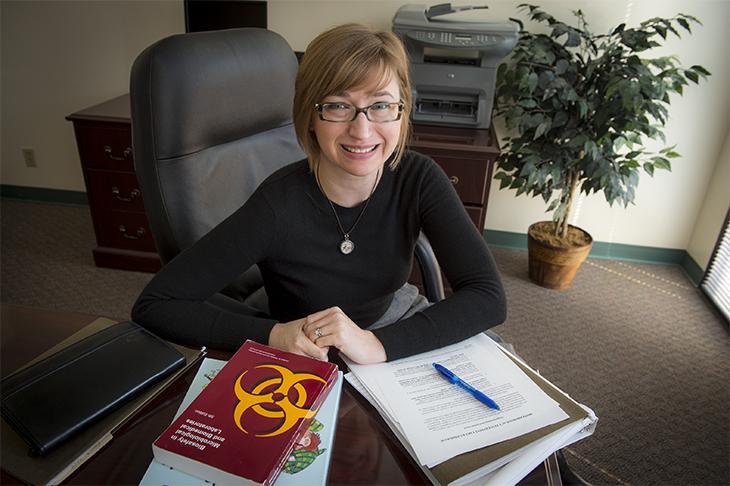Biosafety officer works to support critical Tulane research
With research in life sciences continuing to develop at a rapid pace at Tulane University in the areas of vaccine development, infectious diseases, gene therapy and cancer studies, the university’s Office of Biosafety has a vital role. Enter Angie Birnbaum, new director of the office, who left Harvard University to join Tulane.
She brings 15 years as a biosafety officer to New Orleans and is planning to enhance the program, oversee more training and add five new staff members.
The office works to minimize health risks to those involved in research with biohazardous materials, and in turn protect the general public and the environment.
But Birnbaum’s scope isn’t limited to Tulane. She also collaborates internationally to build biorisk management programs.
Later this month she will travel to Morocco to participate in a biorisk management program by invitation of the U.S. Department of State and Sandia National Laboratories. Birnbaum is one of only six biosafety officers invited, along with others from Yale and Vanderbilt universities, the University of Maryland, the University of Chicago and MIT.
The program focuses on pairing biosafety professionals from the U.S. with those from countries in the Middle East and North Africa (MENA) to work on a biorisk management and risk reduction project in the MENA region. Birnbaum is collaborating with a colleague from the University of Tripoli in Libya to develop a biosafety training program for undergraduates in Libya.
“Training is one of my true interests in the field,” she says. “We have gotten full support and approval from the administration and public health groups” in Libya.
At Tulane she enjoys helping to facilitate research. “I have had the opportunity to provide biosafety support on cutting edge infectious disease research; it’s a very dynamic environment, and there is always something to learn,” she says. “I really believe in work being done at Tulane University. It’s incredibly important.”

